Economic trends complicate futures for high school graduates
Declining college enrollment is nothing new.
It was happening before the pandemic, largely due to the rising cost of tuition and housing at most universities.
However, due to the widespread staffing shortage, especially in the blue-collar sector, workers without degrees are being paid more than ever before.
The colliding trends are forcing families of high school graduates to ponder more than ever before whether higher education is really worth the investment.
Part of old Elijah Krill's daily routine is building a home outside the Power Technical Early College in Colorado Springs.
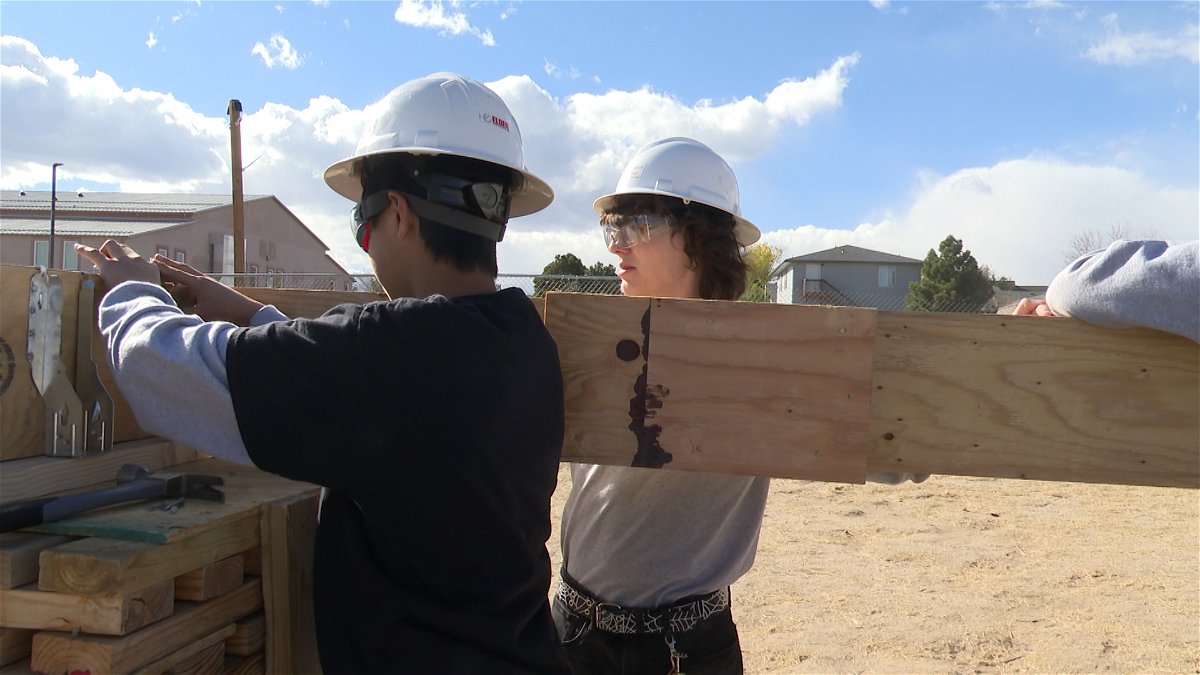
PTEC is part of the James Irwin Charter School system, and every day, nearly 400 students spend 2 of their 9 class periods learning a trade.
Some trades are more traditional, like welding or carpentry, while others are high-tech, involving computers and 3D printers.
“They're going to learn how to use a hammer, they're going to learn how to read a set of blueprints, they're going to learn how to run a machine like this, they're going to learn how to do some basic welding,” explains Rob Daugherty, PTEC Founder and CEO.
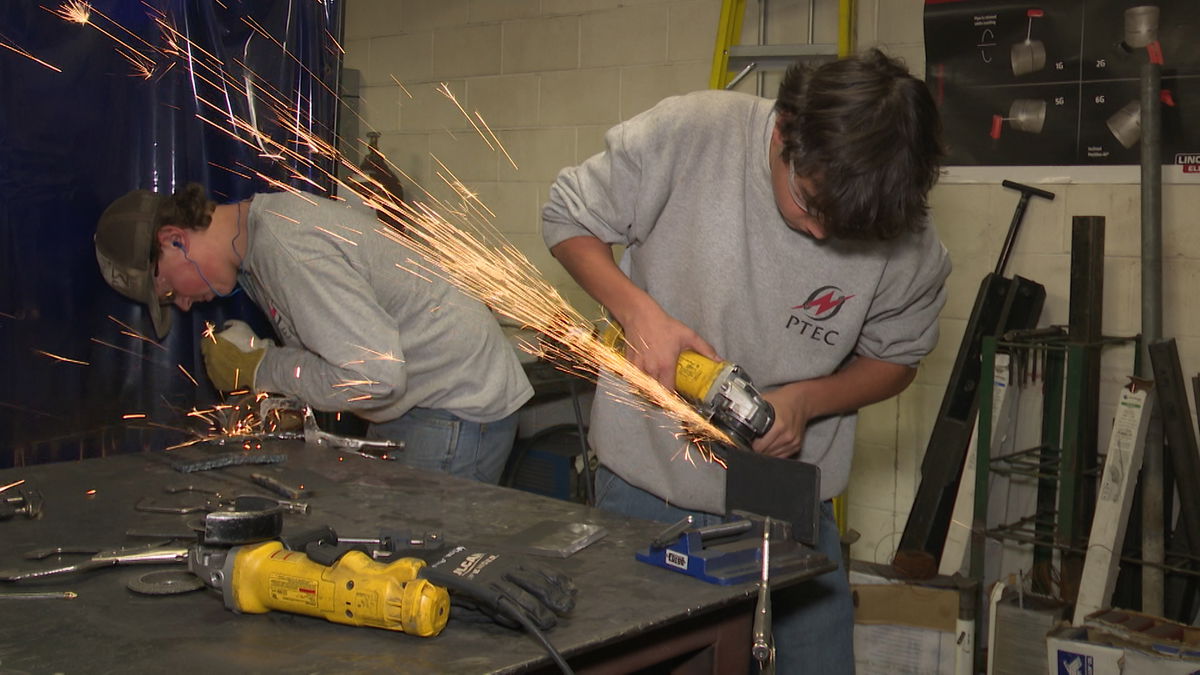
While Daugherty teaches his students not to chase a dollar, the fact is that his graduates are in high demand by local companies.
“They're being offered jobs that will, sadly, be paying more than our starting teachers,” says Daugherty.
The Associated General Contractors of America recently found that the starting pay for non-supervisory private construction jobs climbed 6% just this year, the biggest jump since 1982.
Elijah hopes to have his electrician certification by the end of the year.
He is among the majority of PTEC graduates that have chosen to join the workforce instead of attending college.
“I feel like it's just not the best option for me personally. I feel like it's too much work. I want to get out of school, right? I don't want to go pay for more and get into debt when there's better options,” he says.
Daughterty doesn't discourage college but believes it's not for everyone.
“If you know what you're going to do, why you're attending a four-year school, then all the power to you, I think you should go. But if you can't answer that question 'what are you going to do with that degree?' then it's time to explore other options," he says.
PTEC’s program has gained popularity since it opened in 2016, and the school will soon move into a new building that will almost double the number of students who can attend.
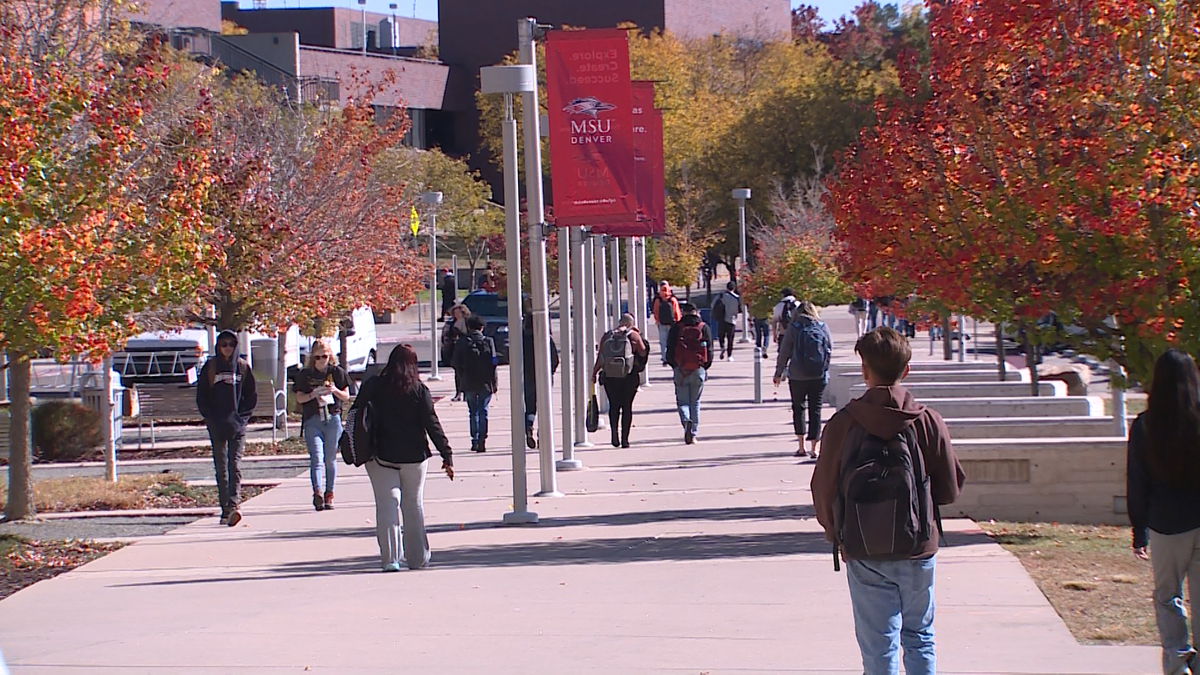
At the college level, however, enrollment isn’t heading in quite the same direction.
In 2010, enrollment at Metropolitan State University in Denver peaked at around 24,000 students, but around the time the pandemic hit, enrollment was down to 18,917 students.
It equates to a drop of around 20%.
“It (enrollment) was a concern until we hit the pandemic, and then it was a major concern since that point in time,” explains Vaughn Toland.
Toland oversees admission and enrollment at MSU-Denver and says nationwide, 4 million fewer students are attending college compared to 2010.
Colorado schools haven't seen quite the same decline as other states, but in the most recent report on enrollment, "Pathways to Prosperity", the Colorado Department of Higher Education found "for almost a decade, Colorado's college-going rate has remained stagnant".
In fact, a look at the data shows the percentage of seniors moving on to college had actually dropped more than 2% even before Covid-19 lowered it further.
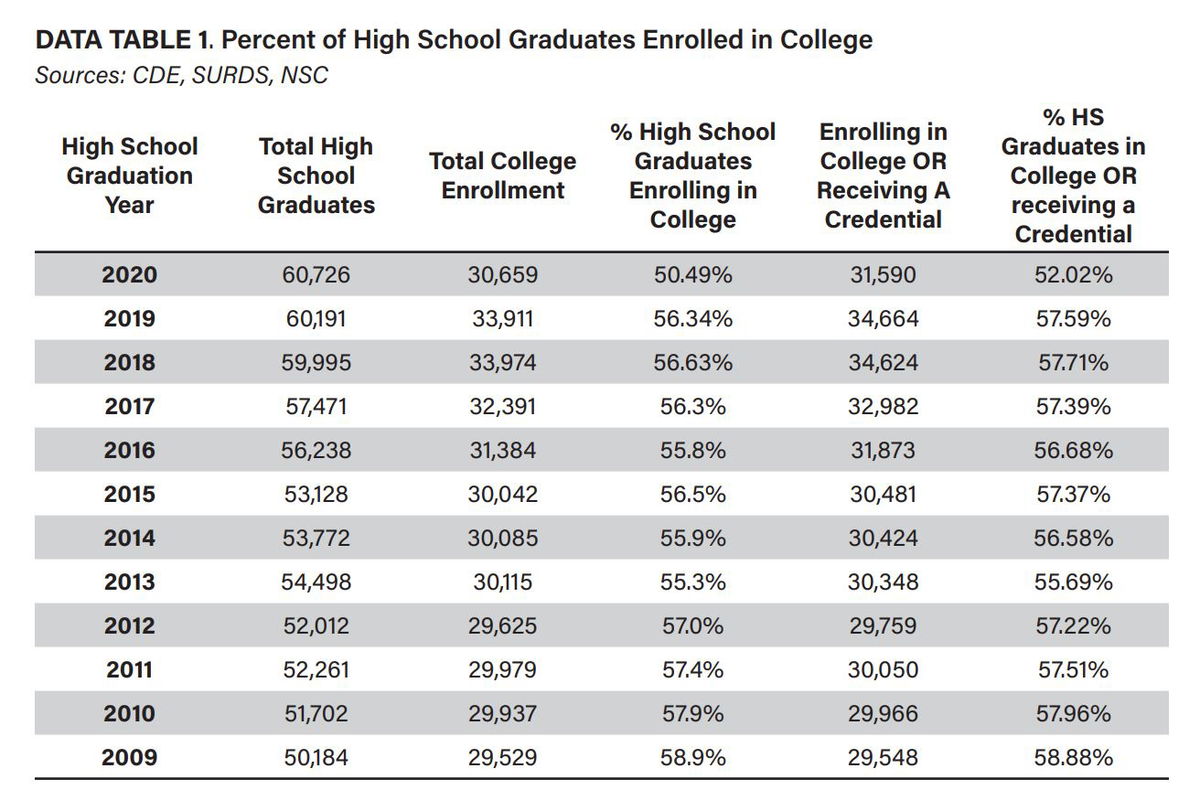
Toland believes a college degree is still a sound investment.
“People who have college degrees make, on average, a million more dollars in their lifetime than someone without a degree,” he says.
However, others believe the salary argument for today's graduates isn't as convincing.
"That's not always true," says Daugherty.
“I don't think it holds as true as it might have 20 years ago," adds District 11 Area Superintendent Scott Mendelsberg, oversees college and career programming.
Mendelsberg says the rising cost of tuition and fees has indeed become too much of a deterrent for many families, and his students are now encouraged to keep all options open, instead of focusing solely on a degree.
“As long as they have a plan, and they have a chance to earn a livable wage at that plan, not a job but a career, those are the aspirations we have for our students,” he says.
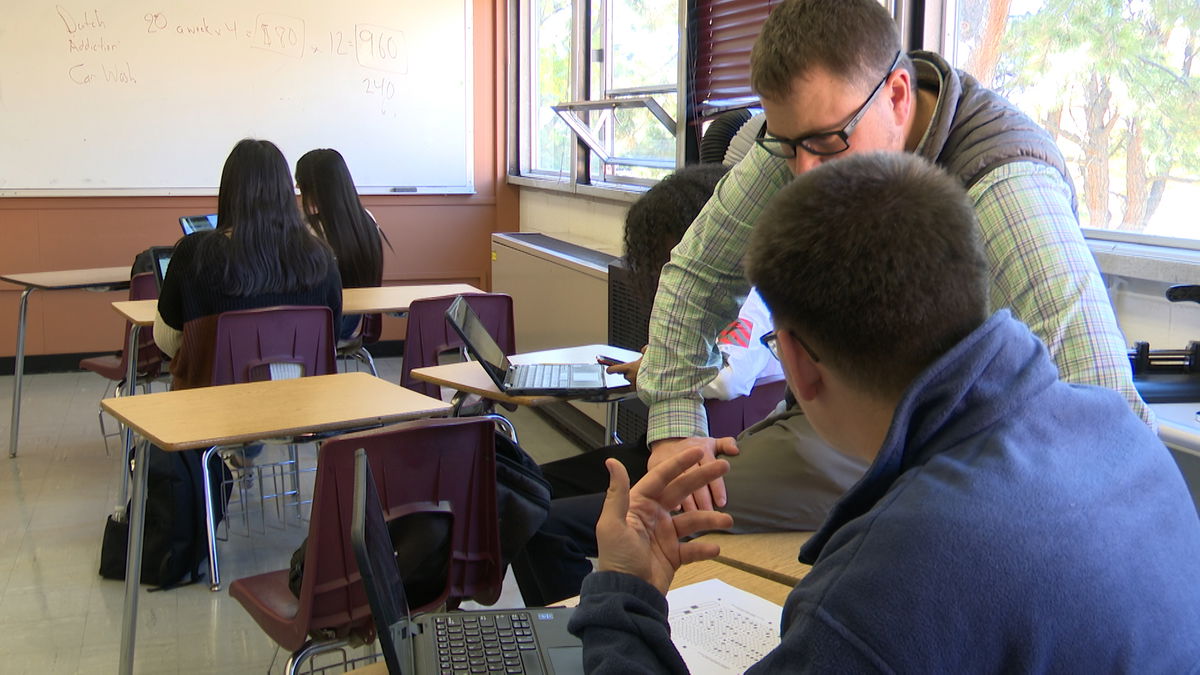
Mendelsberg believes college recruiters need to prove to students in D11 and elsewhere that higher education is still the smartest move.
“It's easier for anybody to give money to any group if you prove results. I don't think you can just keep saying 'give us more money' and not necessarily show why. And I think there's a little bit of a disconnect there between the institutions of higher education, not just specific to Colorado. I think it's a problem across the country.
MSU-Denver has tried to sweeten the pot by waiving application fees, locking tuition rates, and guaranteeing zero payments out-of-pocket for anyone who qualifies for financial aid, a program it calls the Roadrunner Promise.
Its tuition is also among the most affordable among state schools, at around $9000 a year (not including housing), and its acceptance rate is among the highest in Colorado.

Toland believes in addition to the extra incentives, the message to students from parents and counselors that higher education is still the best choice needs to be consistent.
"Everyone's got to be singing from the same songbook," he says.
Toland also hopes the state will take a more active role in promoting Colorado’s colleges and universities.
Unfortunately, those institutions of higher learning are about to absorb another hit known as the “enrollment cliff".
Toland explained that during the 2008 recession, the birth rate declined significantly, so from 2025 to 2029 (about 18 years after the recession), colleges are expecting a big dip in the number of graduating high school seniors who would potentially move on to college.
Making matters worse, Colorado didn’t see a birth rate decline nearly as severe as parts of the midwest or northeast, and so it has become a popular area for college recruiters.
According to Toland, 50 recruiters from out-of-state schools are currently in Colorado right now, making the competition for a declining number of college-going high school graduates even more fierce.
